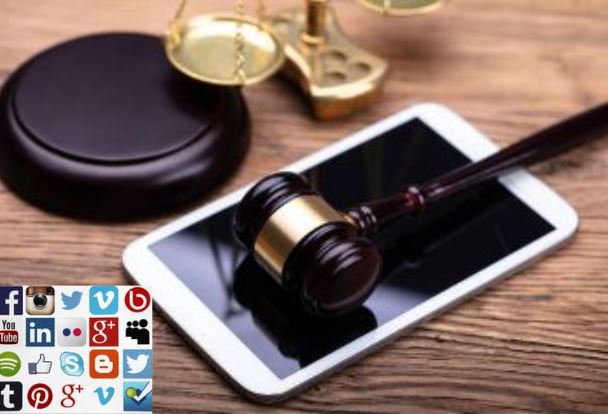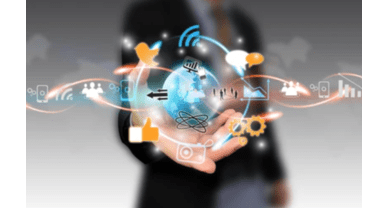Development of laws and their implications on Social media
Introduction
The rapid emergence and evolution of technology has created a new world of cyber world. As the world’s information technology has advanced, it has created a vast opportunity for people to access and store their personal data. Unfortunately, this has led to the inevitable misuse of this technology, which has resulted in various cybercrimes being carried out at both the domestic and international levels. Today, social media has become a vital part of our lives. It has transformed our lives by allowing us to create our own content and share it with our friends. Before, there were various print media outlets that we could rely on such as newspapers, television, and radio. However, now, with the rise of social media, users can now create their own content and spread it with thousands of people.
The rise of social media has allowed people to interact with each other regardless of their backgrounds or professional interests. It has also become a platform for cybercrime. Therefore, it is important that the government has the necessary tools to protect the privacy of our information.
What is Social Media?
[Image Sources : Istock]
It is all those different Media platforms that are user-oriented are considered to be places for communal activity. Social media can be regarded as an online facilitator that helps individuals enhance their social connectivity. It mainly consists of various tools that allow users to interact with each other and share information. The combination of social interaction, technology, and communications allows users to exchange ideas through music, images, and writing. People from different age groups are also attracted to social media due to its ability to allow them to discuss and express their opinions.
Need for Social media laws
The field of social media law is a growing area of law that covers both civil and criminal aspects. It commonly deals with issues related to the hosting and transmission of user-generated content. Due to the nature of social media, various legal issues have been raised regarding its privacy and protection. Some of these include the right of third parties to use photos without the permission of the individuals depicted. Other issues include defamation and advertising law[1]
Laws regulating Social Media in India
In 1950, India’s constitution provided the right to freedom of expression. This is a fundamental right that every Indian citizen should have, but it is not absolute. Freedom of expression can be restricted by the state in the interest of the country or the individual.
India’s constitution guarantees citizens various rights. These include the right to life, liberty, and the protection of their interests. There is no mention of the freedom of media or press in the constitution, but it follows through Article 19, which provides the right to freedom of expression. Dr. Ambedkar stated that the press is essential for political liberty, as it enables people to freely discuss their thoughts. If men are unable to freely talk to one another, no freedom can be secured. A free society can only be established if the freedom of expression is present.
The regulations surrounding social media in India are regulated by the country’s information technology act, which was enacted in 2000. The act defines social media as an intermediary, and therefore, it is liable for various acts and omissions that are covered by Indian laws. Section 66A of the IT Act is focused on regulating the content of social media. It prohibits the transmission of audio, video, or text messages that are offensive. It also prohibits the forwarding of electronic mails that are designed to cause injury, annoyance, or insult to other people. This type of conduct is done with the intention of inciting hatred and spreading false information.
In 2015, the Supreme Court in the case of Shreya Singhal v. Union of India[2] ruled that Section 66A of the Information Technology Act, which restricted the freedom of expression, was unconstitutional. The court was praised by various legal luminaries and ordinary citizens for upholding the right to free speech. However, it also found that the Act’s vague and open-ended nature prevented Indian citizens from freely expressing their ideas.
In IPC sections like 153A, 295A 499, 505, 506, 509 124A deal with crime related to social media. Those found guilty of violating these laws should be punished according to the provisions of IPC. For instance, Section 295A makes it a crime to insult religion or religious beliefs. Section 153A provides for the promotion of enmity between different groups. Section 505 of the Act also makes it a crime to distribute a statement that is misleading or defamatory. These laws are aimed at protecting individuals from online abuse. For instance, Section 506 and 505 of the Act make it a crime to intimidate someone through social media. This means that anyone who publishes a statement that intentionally harms a character is guilty of violating these laws.
In the case of Arnab Manoranjan Goswami v. The State of Maharashtra[3], Arnab Goswami a journalist of a media network was sued for defamation after he criticized a member of the Congress for his statements about the COVID-19 testing methods and the killing of three individuals in Palghar. He said that these statements were questioned “provocatively.” In his defense, he argued that his statements did not promote social or racial unrest and that they had very little chance of inciting any violent incident.
Intellectual Property and Social Media
Due to the increasing number of people using social media to promote their products, there is a growing concern about intellectual property rights in this area. While many companies are happy to have their products featured on these platforms, it can be very problematic if they are being used without proper attribution. Examples of this include pictures or charts that have been created by a website and are being reused by others without permission. They can also include statements that are being used to support a competing service or product or even quotes from articles that have been published without a license. Cases have already been brought against people who have used unauthorized music and videos.
The new IT Rules and their impact on social media
In response to a request from the UN, the Indian government has stated that it has already issued regulations that will help prevent unauthorized use of information technology. The regulations, which are known as the Information Technology Rules, came into effect on May 26, 2021. According to the government, the regulations are designed to empower the users of social media by providing them with a forum to discuss their grievances. The rules were finalized following a discussion with various stakeholder groups.
The regulations were issued to address the concerns of the government about the increasing number of instances of abuse and exploitation of digital platforms. Some of these include the recruitment of terrorists, the spread of hate speech, and the encouragement of violence. In response to the request, the government stated that it had conducted extensive consultations with various stakeholder groups in 2018. The comments received during the process were then analyzed and the regulations were finalized. An inter-ministerial meeting was also conducted to discuss the comments received in detail.
In response to the concerns raised by the government about the potential impact of the new IT Rules on free expression, the government stated that these rules are not in violation of the country’s democratic credentials. India’s constitution guarantees the right to freedom of speech and expression. The new IT Rules only seek information on the originator of a message. If the message is inciting violence, sexually abusing a child, or portraying a woman negatively, then the social media intermediary must reveal who posted it. “In cases where other intrusive options are not working, the social media intermediary must also be required to provide information about the person who initiated the message.[4]
Some social media platforms have claimed that they will have to monitor and track all of their users’ messages in order to identify the first person who posted the offensive content. In response to the concerns raised by the government about the potential impact of the new IT Rules on free expression, the government stated that the concerns about the misuse of the rules are exaggerated and are not in keeping with the principles of democracy. It also noted that the lack of willingness of social media platforms to address the grievances of their users is not in keeping with the principles of the country’s democracy.
In response to the Supreme Court’s ruling in the K.S. Puttusamy case[5], India has acknowledged and respects the right to privacy. The new IT Rules only seek information that is necessary to perform a function, and it does not seek to collect other personal information about an individual.
Conclusion
Despite the various changes that social media has brought, it is still important that people use common sense and treat it as if it were the real world. If you are worried about the legality of something that you are planning on doing through your social media network, then you should contact an attorney who has experience in Internet law
Author: P Rama Sai Kalyan, 4th year, Symbiosis Law School Nagpur, in case of any queries please contact/write back to us at support@ipandlegalfilings.com & IP & Legal Filing.
[1] https://www.winston.com/en/legal-glossary/social-media-law.html
[2] https://indiankanoon.org/doc/110813550/
[3] https://main.sci.gov.in/supremecourt/2020/24646/24646_2020_33_1501_24858_Judgement_27-Nov-2020.pdf
[4] https://www.meity.gov.in/writereaddata/files/Approved%20Social%20Media%20Framework%20and%20Guidelines%20_2_.pdf



